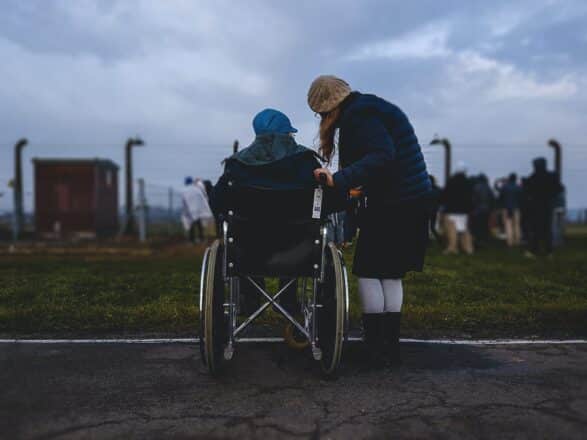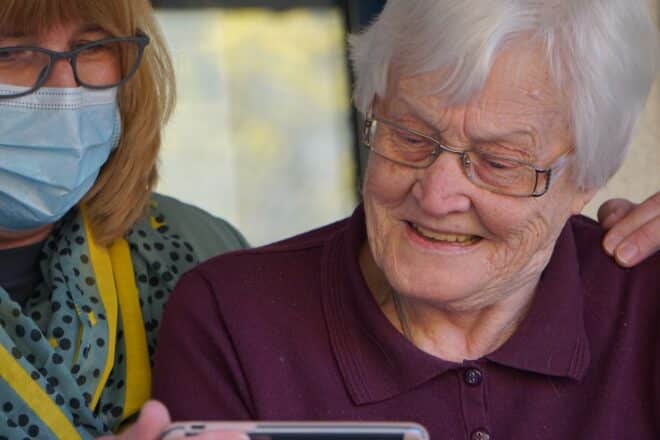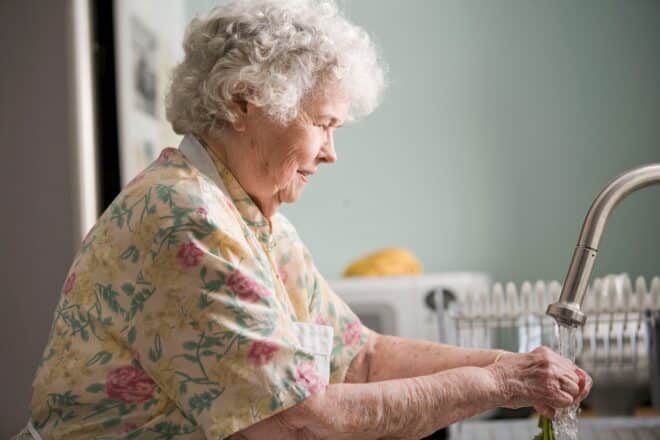Navigating the complex world of medication management can be tricky for your senior loved one, especially if stubbornness or forgetfulness plays a role. “Improving Medication Management for Your Senior Loved One” offers a guiding hand through this landscape, outlining how organization and routine can be invaluable in ensuring accuracy in dosages, frequencies, and other crucial factors related to medication administration. The article presents practical organizational tips and shares some tactics to help seniors remember to take their medications. It also provides some suggestions on hiring professional caregivers, using technology solutions, and other proven methods to ease the process of medication management. The content draws on the experiences of a registered home health nurse and offers useful tips to best support your loved one’s journey to a healthier life with appropriate medication management.

Understanding the Concept of Medication Management
The basic principle of medication management
Medication management is a crucial aspect of senior healthcare, focusing primarily on ensuring accuracy in terms of dosages, frequencies, and other pertinent factors such as the time of day the medication should be taken, whether it should be taken with or without food, etc. The fundamental objective is to avoid medication errors and ensure optimal therapeutic efficacy.
The role of caregivers
Caregivers play a significant part in effective medication management. They can either be family members, certified nurse aides, or home health aides. Their role often involves aiding the senior in remembering to take their prescribed drugs, maintaining current medicine lists, handling prescription refills, and helping seniors get and stay organized.
Understanding different medications and their purposes
For effective medication management, it’s essential to understand different categories of medications and their purposes. This includes both prescribed drugs and over-the-counter ones. Seniors and caregivers alike should be aware of what each medication does, its dose, frequency, and potential side effects. It guarantees that both the senior and the caregiver know why a medication is being used and how it helps in the treatment regimen.
Discussing the Challenges in Medication Management for Seniors
Common struggles of seniors with medication
Seniors often confront multiple issues when managing their medications. For example, cognitive decline can lead to forgetfulness, whereas physical difficulties might make it hard to handle pill bottles. Moreover, the increased likelihood of multiple prescriptions in seniors can lead to complexity and confusion.
Effects of mismanagement of medication
Mismanagement of medication can result in harmful consequences, including increased hospitalizations, rise in healthcare costs, and even potentially fatal health complications. It’s therefore imperative to establish a practical and effective medication management system.
The importance of an effective system
An effective medication system enables seniors to adhere to their prescribed regimen in a timely and accurate manner, consequently improving their health outcomes. It also reduces the risk of drug interactions, overdose, and skipped dosages.
Innovative Strategies for Improving Medication Management
Customized organization techniques
Every senior is unique; therefore, what works effectively for one might not work for another. The key lies in customizing organizational strategies which align with the seniors’ routines and are also easy to follow for better compliance.
Modern tools for medication management
The advent of technology has introduced numerous tools to support medication management. Devices like automated pill dispensers, smartphone apps, digital alarms, etc. all aid seniors in adhering to their medicine routines.
Trial and error in discovering effective practices
Discovering an effective strategy often requires a certain degree of trial and error. It’s helpful to try out various methods, assess them, and stick to what works best for the senior involved.
Tips to Help Seniors Remember to Take Their Medications
Making use of visuals
Visuals, such as medication lists or charts, can serve as effective reminders for seniors. Placing these in highly visible areas around the home like the kitchen fridge, bulletin board, etc., stimulates memory and encourages medication compliance.
Linking medication intake with daily activities
Creating a link between medication intake and everyday activities, like eating meals or brushing teeth, can help seniors remember to take their medications. It turns pill-taking into a regular part of their daily routines.
Utilizing digital alarms and timely reminders
Digital tools like alarms on smartphones, tablets, or automated medication dispensers are extremely beneficial in reminding seniors to adhere to their medication regimen. They sound alarms when it’s time for the medication to be taken, thereby ensuring timely intake.

Effective Ways of Organizing Medications
Using medication cups and containers
Pre-filled medication cups or small containers can be placed in designated locations around the house for easy access. They can be labeled with directions about when to take the medicine within them.
Importance of separate storage for daily and as-needed medications
It’s crucial to separate daily medications from as-needed ones to avoid confusion. The last thing you want is seniors mistaking their daily pills for those meant only for specific symptoms.
Benefits of clear labels and color-coding
Clear labels on medication bottles, pillboxes, or bins help seniors identify the medication they need. Color-coding can also be beneficial, for example, using red for heart medications and blue for allergy medicines.
The Role of Technology in Medication Management
Using pill dispensers and alarms
Technological devices like automated pill dispensers and alarms come with features such as beeping alerts, flashing lights, and even emergency calls to family members when a medication dose is missed, making them exceptionally helpful.
Smartphone apps and tools for medication reminders
Various smartphone applications send out alerts when it’s time to take medications. This technique is beneficial for tech-savvy seniors who keep their devices handy most of the time.
The advantage of tech solutions for tech-savvy seniors
For seniors comfortable with technology, digital solutions offer a wide array of benefits. They can minimize human error, provide prompt reminders, and even allow monitoring by caregivers, enhancing overall medication management.

Involving Professional Caregivers in Medication Management
The role of certified nurse aides or home health aides
Certified nurse aides or home health aides can be instrumental in ensuring proper medication management. They can help seniors remember their medication times, report any medication-related issues, and even handle prescription refills.
Benefits of having a medical professional involved
The involvement of medical professionals ensures that the senior’s medical needs are appropriately addressed. They also monitor the senior’s health, respond to any adverse reactions, and interact with doctors on the senior’s behalf if needed.
How caregivers support timely adherence to medication regimens
Caregivers assist by reminding seniors to take their medicines, organizing medication routines, and ensuring that the seniors adhere to the prescribed treatments. Their involvement consequently supports health outcomes.
Considerations When Travelling with Medications
How to effectively transport medication
When traveling, it’s essential to have a sturdy container to carry medications. Options include lunch boxes, tackle boxes, or even cosmetic bags. This aids in securely storing and easily accessing the medications while on the move.
Things to consider when traveling with medications
One must also account for how different time zones might affect medication schedules. In addition to keeping medication readily accessible, it’s vital to have a copy of prescriptions and a list of all medications being taken while traveling.
Backup plans in medication management while traveling
Having a backup plan like carrying extra medicine and prescriptions is crucial while traveling. It ensures that in case of emergencies or unexpected delays, the senior’s medication regimen isn’t interrupted.
Strategies to Reduce the Risk of Overdosing and Mistakes
Importance of precise dosage and frequency
To prevent overdosing and medication errors, adhering to the precise dosage and frequency is crucial. This means taking only the prescribed amount of medicine at the specified times.
Preventing double-dosing and overdose
Tools like pill dispensers and medication organizers can prevent double-dosing and overdoses. They can be locked and loaded to avoid mistakes or overconsumption, making them practical for seniors, especially those with dementia.
The significance of updated and current medicine lists
Keeping an updated and current list of all medicines a senior is taking, including over-the-counter medications and supplements, is significant in preventing the senior from taking similar medications together or double-dosing.
Choosing the Right Pill Organizers and Storage Methods
Different styles and types of pill organizers
Pill organizers come in a variety of styles and sizes. From daily to weekly organizers and options catering to multiple dosages per day, selecting the right one depends on the senior’s needs and the number of medicines they take.
Choosing a pillbox suited to specific needs
The type of pill organizer selected should be one that comfortably accommodates the number and size of pills a senior has. For instance, if a senior takes multiple medications at different times, an organizer with multiple sections for each day would be suitable.
Proper maintenance and cleaning of pill organizers
Like any other tool used for medication storage, pill organizers need to be cleaned and maintained. Regular cleaning prevents contamination and ensures the effectiveness of the medications.
